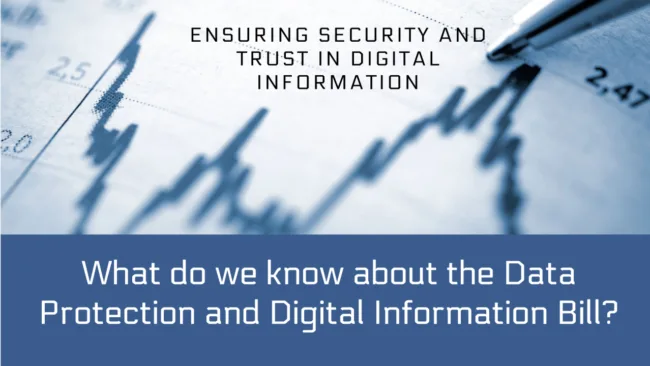What do we know about the Data Protection and Digital Information (DPDI) Bill?

Posted on April 8, 2024 by Rob May
The Data Protection and Digital Information (DPDI) Bill is a significant legislative proposal currently undergoing scrutiny in the House of Lords. Its aim is to reform data protection laws in the UK, making them more flexible and business-friendly while maintaining the country’s high standards of data protection. The bill represents an evolution from the existing UK General Data Protection Regulation (UK GDPR) and Data Protection Act 2018 framework, reflecting the UK government’s ambition to adapt to technological advancements and the changing digital landscape.
Key objectives of the DPDI Bill include:
1. Simplifying Data Use for Businesses and Organisations: The bill proposes adjustments to reduce burdens on businesses and organisations, making it easier for them to use personal data to innovate and improve services. This includes streamlining the requirements for data processing, aiming to enhance efficiency without compromising data protection standards.
2. Strengthening the UK’s Data Rights and Protections: While the bill seeks to make data handling practices more flexible for businesses, it also emphasises safeguarding individuals’ data rights. It aims to ensure that personal data is used ethically and responsibly, with clear accountability mechanisms in place for data processors and controllers.
3. Enhancing Public Sector Data Sharing: Another focus of the DPDI Bill is to improve data sharing across public sector bodies. By facilitating easier access to data, the bill aims to improve public services and policy making, contributing to societal benefits such as enhanced healthcare and security.
4. International Data Transfers: The bill addresses the framework for international data transfers, aiming to simplify processes while ensuring that personal data is adequately protected when it leaves the UK. This is crucial for maintaining the flow of information in a globalised economy and for cooperation with international partners in various fields.
5. Regulatory Reforms: The DPDI Bill also proposes changes to the role and powers of the Information Commissioner’s Office (ICO), the UK’s data protection authority. These reforms are intended to provide the ICO with more flexibility to carry out its duties effectively, including a shift towards a risk-based approach to data protection compliance and enforcement.
It’s important to note that while the DPDI Bill seeks to make UK data protection laws more adaptable and business-friendly, it also aims to maintain an equivalent level of protection to that provided under the EU GDPR. This equivalence is vital for ensuring the continued free flow of data between the UK and the EU, which is crucial for trade and cooperation.
As the bill is still in the legislative process, its provisions are subject to change based on parliamentary debates and amendments. Businesses and organisations are advised to stay informed on the bill’s progress and to begin considering how its eventual enactment might affect their data protection practices.
Remember, while the DPDI Bill signifies potential changes in the data protection landscape, it’s crucial to seek professional advice for specific situations, especially as the bill becomes law and its implications become clearer. The Information Commissioner’s Office (ICO) website is a valuable resource for updates and guidance on compliance with UK data protection laws.







